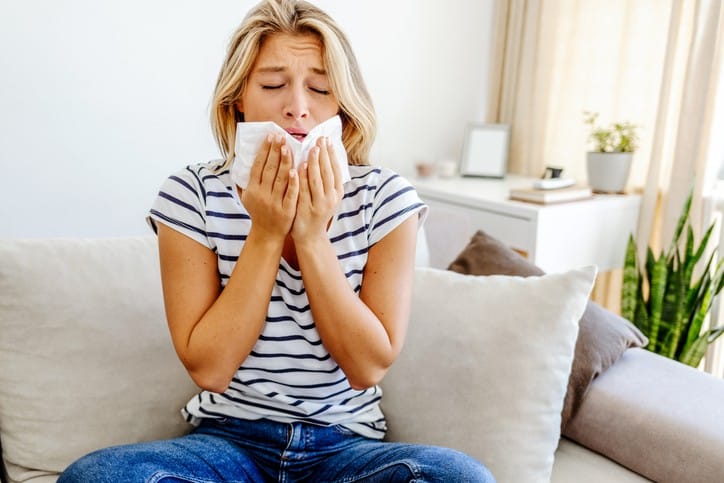Spring brings blooming flowers, warmer temperatures and, for many people, sneezing, watery eyes, and runny noses. Seasonal allergies can turn an otherwise beautiful time of year into a struggle. But did you know your air conditioning system plays a key role in how allergens affect you indoors? If your AC system isn’t properly maintained, it can circulate dust, pollen, mold spores, and other irritants throughout your home. Getting your HVAC system ready for allergy season isn’t just good for comfort — it’s good for anyone prone to allergy problems.
How Your AC Affects Indoor Air Quality
Your air conditioner does more than just cool your home — it also helps filter the air you breathe. As air circulates through the system, it’s pushed through filters that trap airborne particles like dust, pet dander, and pollen. But if the primary filter is clogged or outdated, it needs to be cleaned and even replaced.
A poorly maintained AC system can even become a source of indoor allergens. Moisture buildup in the coils or ducts can lead to mold growth, and dusty vents can spread particles with every cycle.
Signs Your AC Isn’t Allergy-Ready
- You’re sneezing or coughing more frequently indoors
- Musty smells are emanating from the vents
- There’s a noticeable buildup of dust on registers, furniture, or both
- You’re experiencing high indoor humidity
- The vents are delivering adequate airflow
If you notice any of these signs, it’s time to give your system a little TLC before allergy season gets into full swing. Which means it’s time to call Optimum Air for our AC preventive maintenance service.
Steps to Make Your AC System Allergy-Ready
- Replace Your Air Filters Choose a filter with a higher MERV rating (Minimum Efficiency Reporting Value), ideally between 8–13, which can trap smaller particles like pollen and mold. HEPA filters offer even more protection if your system is compatible. Just ask your Optimum Air professional for the right advice.
- Schedule a Professional AC Tune-Up – Spring is the perfect time for a maintenance check. Zach can clean your system’s coils, check for mold or mildew, and ensure proper airflow — all of which help your system filter air more efficiently and keep allergens at bay.
- Consider an Air Purifier or UV Light – If you or another family members suffers from severe allergies, adding a whole-home air purifier or UV germicidal light to your HVAC system can dramatically improve indoor air quality. These additions help kill bacteria, mold spores, and viruses that standard filters might miss.
- Keep Indoor Humidity in Check – Excess humidity can lead to mold growth, which worsens allergies. Your AC naturally dehumidifies, but if levels remain high, a whole-house dehumidifier might help balance things out. Or, depending on its age, it could also be time to replace your AC system.
Breathe Easier This Spring
Getting your AC system ready for allergy season is a smart move that protects both your comfort and health. There’s a lot you can do on your own, and there’s a lot we can do for you. So. contact Optimum Air Co. today to schedule AC preventive maintenance for your home.
